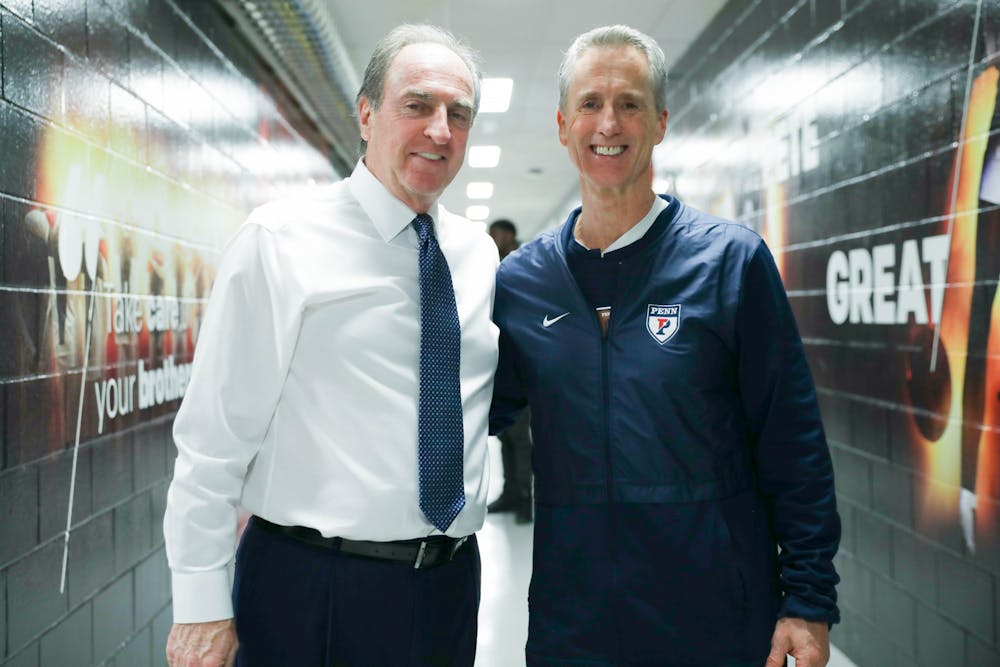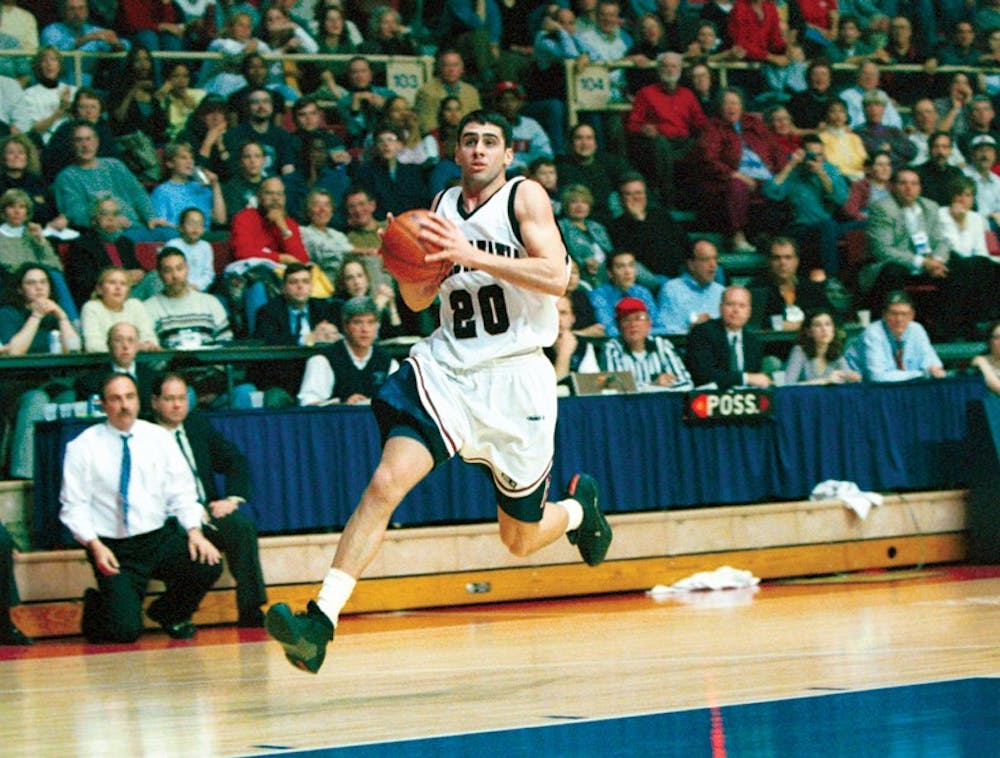
While basketball coaches' and mentors’ chief duty is to make their players better, the truly great ones have the ability to impact a player’s entire life.
Such is the case for coach Fran Dunphy and the footprint he has left on Penn’s basketball program and its former coaches and players. After serving as assistant coach for two years, Dunphy was promoted to head coach and led the Quakers for 17 seasons from 1989-2006.
Dunphy racked up several impressive accolades during this dominant era of Penn basketball, including 10 Ivy League titles and 310 total wins, second most in the Ivy League all-time. However, Dunphy’s impact on his players and coaches transcended the court and their success.
“He allowed others to do what they do well if it wasn’t a strength of his,” said Penn coach Steve Donahue. “That’s the sign of a great leader: the ability to give great responsibility.”
Coaches Michael Jordan (Penn Class of ‘00), Matt Langel (Penn Class of ‘00) and David Klatsky (Penn Class of ‘03) are all not only former players of Dunphy’s, but are also all current members of Colgate’s coaching staff, with Langel as the head coach.
Langel, in addition to being a former player under coach Donahue, coached alongside him at Penn for two years before moving into a position at Temple University as an assistant to Dunphy, who had taken over for the Owls after leaving Penn in 2006. Eventually, Langel arrived at Colgate, and as a couple vacancies opened up, Langel invited his former Penn teammates to join him.
The trio of coaches looked back at coach Dunphy as a model of the excellence they were striving towards, both as coaches and people.
“We don’t have enough time… [Coach Dunphy’s] successes as a basketball coach pale in comparison to what he’s been able to achieve as a man,” said Langel.
“We’re all pieces of him,” said Jordan, “A lot of what we are is because of him. He’s probably one of the best human beings on the planet.”

Langel and Jordan both cited Dunphy’s insistence on accepting nothing less than one's best effort. Unlike Penn, which carries an illustrious legacy in men’s basketball history, Colgate was looking to establish itself as a respectful force for the first time in school history.
You’ll hear all the time that basketball is a "player’s game," but the coaching staff at Colgate has taken this message to heart. Langel carries this message to Colgate and stresses the importance of the little things a player can do to put himself in the best position possible, what he defines as “winning plays.”
Every team begins creating its school culture through the process of recruiting. At Colgate, the coaches want the hardest and most willing workers, who tend to also be good people. Their demands of the players are simply to play hard, play together, and make good decisions.
Just as Dunphy empowered Donahue, Langel also describes how Donahue shifted his perspective on a coach’s role in player development, and also taught him to always push players to maximize their potentials.
“Every coach talks about culture, but certainly, it’s been about finding guys who are committed to everything that is Colgate and what has become Colgate basketball,” said Langel.
Even off the court, coach Langel emphasizes how any coach needs to be available to any player willing to advance their game. It’s not just about giving your players the most opportunity by running screens and plays, but also about granting them freedom and responsibility to forge their own play styles.
“We play a free flowing motion offense,” said Jordan. “Us as coaches, we want to give our players as many options as we can, and then they go out and make the decisions.”
The freedom of pace and style has allowed Colgate’s players to cultivate their own identity as a team in recent years. The staff and players have completely turned the program around: going from 8-22 in Langel’s first season to a combined 68-34 over the past three.
The coaches display supreme faith in their players’ competitiveness and their own personal desires to improve. This trust in the players partially results from Dunphy’s unconditional belief in them.
“I can hear [Dunphy] ringing in my ears: That it’s never about you; it’s always about the team or the group or the community,” said Langel. “Coaching, it’s an incredible platform to be a part of young people’s lives.”
These cultures share a nearly identical system of values that allow players to flourish given their strengths. There is no question that the many teachings and lessons of coach Dunphy and Donahue have impacted and still continue to impact the basketball programs at Penn and Colgate.
“Don’t make it about yourself. That’s something that stuck with you, and still sticks with you today.” said Jordan.
The Daily Pennsylvanian is an independent, student-run newspaper. Please consider making a donation to support the coverage that shapes the University. Your generosity ensures a future of strong journalism at Penn.
Donate



